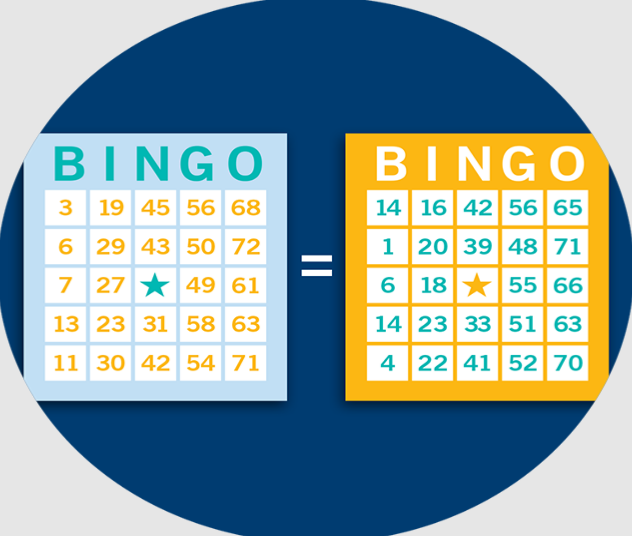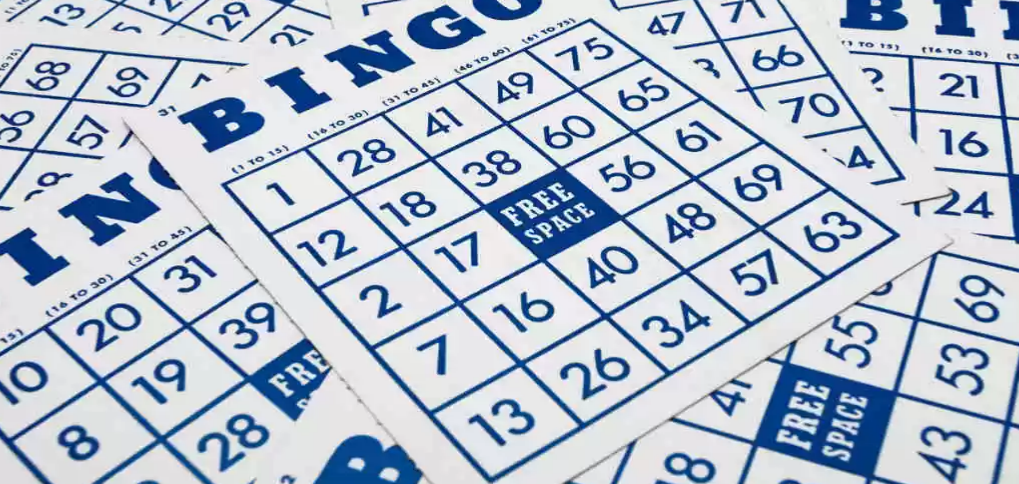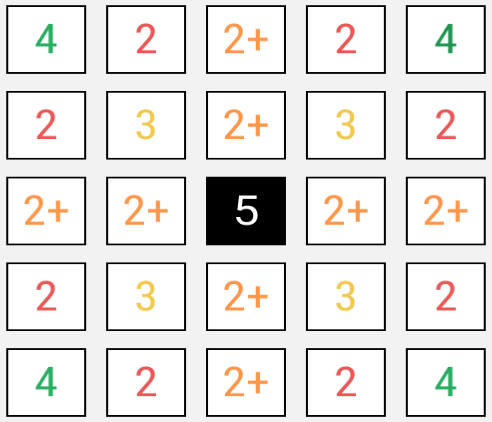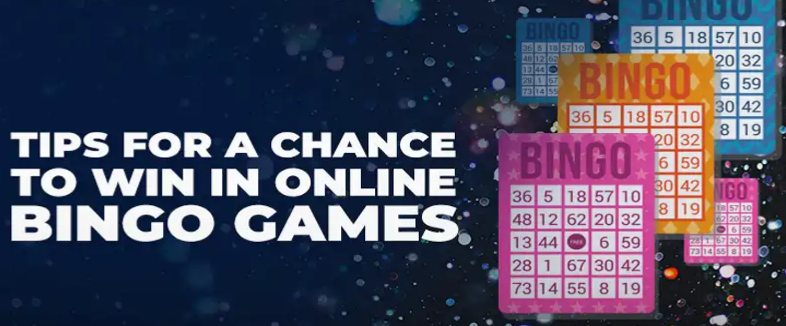The chances to win bingo depend on card variability, player count, and number patterns drawn.
Probability and Odds in Bingo
Bingo, at its heart, is a game of chance. Like all games of chance, understanding the underlying probabilities can provide insights into one’s likelihood of winning. From a mathematical standpoint, bingo’s probabilities shift based on the total number of cards in play, the pattern required to win, and the number of numbers called.

The Mathematics Behind Bingo
When you first start a game of bingo, assuming you’re playing the classic 75-ball variant, there’s a 1 in 75 chance the first number called is on your card, assuming it’s a single card game. As each subsequent number is called, these odds change.
Let’s delve deeper:
- Initial Odds: If you’re looking at a single number, the chances it’s called in the beginning is 1 in 75. If you have, say, 5 of the same number across multiple cards, the odds slightly improve.
- Shifting Odds: As the game progresses, the odds change. For instance, after 10 numbers have been called, the odds that one of your remaining numbers is called next is 1 in 65.
- Completing a Line: If you’re trying to complete a horizontal line, and you have 4 of the 5 numbers already, the odds of that last number being called is 1 in the remaining numbers left.
Here’s a detailed analysis on Wikipedia about game theory that can be applied to such situations.
Factors Influencing Winning Chances
There are several elements that can influence your winning chances in a bingo game:
- Number of Cards: The more cards you play, the higher the chances one of them will have the winning pattern. But it also means more numbers to track, which can be challenging.
- Number of Players: The more players there are, the higher the chances someone will get bingo before you. It’s a balance – while more players might mean a larger prize pot, it also means stiffer competition.
- Game Variant: There are many variants of bingo, from 75-ball to 90-ball and everything in between. Each has its own set of odds, based on the patterns required to win.
- Speed: Some online games offer “speed bingo“, where numbers are called faster. This can impact your ability to track numbers and influence your winning chances.
Wikipedia’s page on bingo provides more insights into the game’s variants and history, which can further shape understanding of the odds.
Strategies to Increase Winning Chances
While bingo is primarily a game of chance, some strategies might enhance your winning prospects. These tactics don’t guarantee a win but can improve your odds. Let’s explore some of the most popular strategies used by seasoned bingo players.
Choosing the Right Bingo Cards
Selecting the best bingo card is more of an art than a science. However, certain considerations can guide your choice:
- Card Variety: Try to pick cards with a wide range of numbers. This spreads out your chances across the various possibilities.
- High and Low Numbers: Some players swear by selecting cards that have an even mix of high and low numbers, believing that it increases their chances of having a called number.
- Granville’s Strategy: Joseph E. Granville, a financial writer, suggested choosing cards with numbers that have different endings, which theoretically gives a better chance of winning. His theory is grounded in the law of probability and is worth exploring. Granville’s strategies are further elaborated on Wikipedia.
Observing Patterns and Trends
Many regular bingo players believe in spotting trends:
- Frequent Numbers: Some claim that certain numbers get called out more frequently in a session. Tracking these numbers and choosing cards containing them might be beneficial.
- Rare Numbers: On the flip side, some argue that numbers which haven’t been called out for a while are “due” to come up soon. This is based on the Gambler’s Fallacy, and while it’s a popular belief, it’s not always a successful strategy.
- Pattern Bingo: In certain variations of the game, players might have to form a specific pattern to win, like a ‘T’ or ‘X’. Recognizing the easiest patterns to form can be a beneficial strategy.
Playing with Fewer Players
This strategy is straightforward:
- Reduced Competition: Playing in a game with fewer players means there are fewer cards in play. This increases the chance that your card will contain the winning pattern.
- Bigger Prizes in Smaller Games: Sometimes, smaller, less crowded games might offer bigger prizes as an incentive to attract players.
- Play During Off-Peak Hours: If you’re playing online, try to identify off-peak hours for your region. This is a time when fewer players are online, giving you a higher chance to win.
Exploring these strategies and understanding the intricacies of the game can make your bingo experience more enjoyable. For a deeper dive into the game’s dynamics, consider checking out the official bingo guidelines on Wikipedia.

The Role of Luck in Bingo
Bingo remains one of the most popular games worldwide due to its simple rules and the blend of luck and strategy. But to what extent does luck dictate the outcome of a bingo game? And can players really influence the outcome through skill and strategy?
Comparing Skill vs. Luck in Bingo
When we talk about bingo, we often hear the phrase, “It’s all in the luck of the draw.” Let’s break this down:
- Luck Dominance: The primary factor in bingo is the randomness of the draw. No player can predict or influence which numbers get drawn, making luck the dominant factor.
- Skillful Play: While players cannot control the numbers drawn, they can make skillful decisions in other areas, like choosing certain cards or managing multiple cards simultaneously.
- Strategic Choices: Opting to play during less busy times, choosing a diverse range of numbers, or even selecting a specific bingo hall or online site based on payout rates are areas where strategy comes into play. Yet, despite these choices, the actual game results heavily hinge on luck.
For a comprehensive breakdown of games of chance and how they function, Wikipedia’s page on probability and gambling provides an excellent resource.
How Randomness Impacts Outcomes
Randomness is the heart and soul of bingo. It’s what makes every game unpredictable and exciting. Here’s how this randomness plays out:
- Bingo Machines: Whether it’s the traditional rotating drum or an electronic random number generator, the purpose remains the same – to ensure complete randomness in number selection.
- True Randomness: In a perfectly random game of bingo, each number has an equal chance of being drawn. This means that no strategy or prediction tool can accurately determine the next number.
- Human Perception: Often, players perceive patterns where none exist. For instance, if a number hasn’t been drawn for several rounds, players might think it’s “due.” However, this perception doesn’t change the equal probability of each number being drawn.
To further understand the concept of randomness and its implications, a deep dive into randomness on Wikipedia can offer more insights.
In conclusion, while there are certain strategies and choices players can adopt in bingo, the game remains one where luck plays the pivotal role. Embracing this unpredictability is part of the joy and charm of the game.

Myths and Misconceptions About Winning Bingo
The world of bingo, like many other games of chance, is riddled with myths and misconceptions. These beliefs, often passed down through generations, can influence player behavior, sometimes to their detriment. Understanding these myths and separating fact from fiction can help players approach the game more rationally.
Common Bingo Myths Debunked
Various myths have circulated in bingo communities over the years. Here are some of the most prevalent ones:
- “Certain Numbers Get Called More Often”: Some players believe that specific numbers get called out more frequently than others. However, in a game based on true randomness, every number has an equal chance of being drawn each time.
- “A Number is Due to be Called”: If a particular number hasn’t been called for several rounds, some think it’s more likely to be drawn next. This is a manifestation of the Gambler’s Fallacy, which is a misconception about probability.
- “Always Stick to the Same Card”: There’s a belief that using the same card repeatedly increases the chances of winning. This idea stems from a mistaken notion of luck being attached to objects, rather than understanding the randomness of the game.
To learn more about these misconceptions in the broader context of gambling, you might want to explore Wikipedia’s page on the Gambler’s Fallacy.
The Truth about Bingo Strategies
While many strategies claim to increase winning chances, players should approach them with a critical mindset:
- No Guaranteed Wins: No strategy can guarantee a win in bingo due to its inherent randomness. While some tactics might increase your odds slightly, the outcome remains uncertain.
- Diversify Your Approach: Instead of sticking rigidly to one strategy, seasoned players often mix and match, diversifying their approach based on their observations and experiences.
- Enjoy the Game: Ultimately, bingo is a social game meant for enjoyment. Rather than getting too bogged down in strategies and superstitions, embracing the social and fun aspects can make for a more fulfilling experience.
For a more comprehensive understanding of strategies and their effectiveness in games of chance, consider diving into Wikipedia’s exploration of game strategies.
In summary, while strategies can add an extra layer of excitement to the game, it’s essential to differentiate between evidence-based tactics and baseless myths. Recognizing and debunking these myths can lead to a more informed and enjoyable bingo experience.

Technological Impacts on Bingo Odds
In today’s digital age, technology has dramatically transformed many traditional activities, and bingo is no exception. The transition from bingo halls to online platforms has not only changed the way players engage with the game but has also influenced the odds and dynamics of winning. Let’s delve into the impact of technology on bingo odds.
Online Bingo vs. Traditional Bingo
The digital revolution brought about a new era for bingo enthusiasts:
- Global Player Base: Online platforms allow players from all over the world to participate simultaneously. This can result in larger pools of players, potentially making games more competitive.
- Automated Tracking: Online bingo often provides automatic number marking, reducing the chances of human error and ensuring players don’t miss a potential win.
- Increased Game Variants: Online platforms can offer a myriad of bingo game variations, each with its unique odds and rules. Players can often find niche versions that cater to their preferences.
- Instant Gratification: The speed of online bingo can be faster, with rapid games and immediate rewards. This can influence player behavior and betting patterns.
For an understanding of the broader implications of technology on games, Wikipedia’s page on online games provides valuable insights.
How Technology Can Change the Game
Modern technological tools and algorithms can influence bingo in various ways:
- Random Number Generators (RNGs): While traditional bingo relied on physical mechanisms to draw numbers, online platforms use RNGs. These ensure that each number has an equal chance of being selected, maintaining the game’s fairness.
- Adaptive Play: Some platforms may offer adaptive difficulty levels, adjusting the game’s pace based on the player’s skill level or experience.
- Augmented Reality (AR) and Virtual Reality (VR): Emerging technologies like AR and VR can further transform the bingo experience, creating immersive environments that might influence player perception and decision-making.
- Data Analysis and Prediction: While bingo remains a game of chance, big data analytics can offer insights into player behavior, popular game variants, and trends. These insights, while not influencing the odds, can enhance the overall gaming experience.
To grasp how technology continually reshapes gaming experiences, you might find Wikipedia’s section on technological advancements in gaming informative.
In conclusion, while the essence of bingo remains consistent, technology has undeniably reshaped its landscape. From the way numbers are drawn to the immersive experiences offered by modern platforms, technology has both enriched the game and influenced player perceptions of winning odds.

